Earth
Sign up for our newsletter
We summarize the week's scientific breakthroughs every Thursday.
-
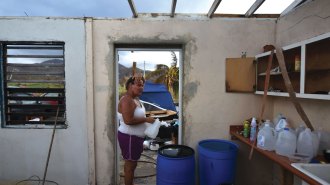 Climate
ClimateA coral pollution study unexpectedly helped explain Hurricane Maria’s fury
Tracking coral reef pollution in Puerto Rico, conservation researchers discovered by chance how the coastal ocean fueled Hurricane Maria.
-
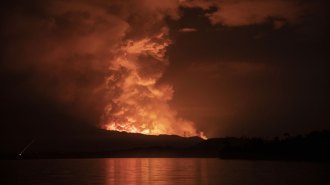 Earth
EarthIn 2021, a deadly volcano erupted with no warning. Here’s why
Before the Nyiragongo eruption, underground magma was already close to the surface and so didn’t trigger instruments that look for lava movement.
-
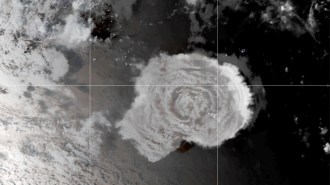 Earth
EarthThe Tonga eruption may have spawned a tsunami as tall as the Statue of Liberty
A massive undersea volcanic eruption in the South Pacific in January created a tsunami that was initially 90 meters tall, computer simulations suggest.
By Sid Perkins -
 Science & Society
Science & SocietyA new seasoning smells like meat thanks to sugar — and mealworms
A spoonful of sugars could help cooked mealworms go down more easily, a potential boon for the planet.
By Anil Oza -
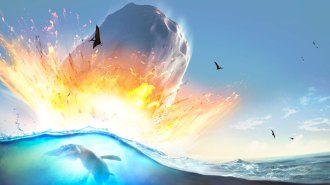 Earth
EarthNot one, but two asteroids might have slain the dinosaurs
A craterlike structure found off West Africa’s coast might have been formed by an asteroid impact around the same time the dinosaurs went extinct.
By Nikk Ogasa -
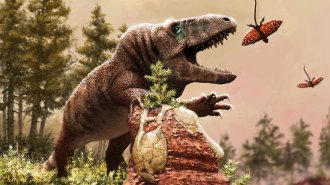 Animals
AnimalsExtreme climate shifts long ago may have helped drive reptile evolution
The end-Permian extinction left reptiles plenty of open ecological niches. But rapid climate change may be what kick-started the animals’ dominance.
By Beth Geiger -
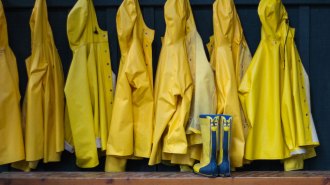 Environment
EnvironmentCommon, cheap ingredients can break down some ‘forever chemicals’
Forever chemicals, or PFAS, are harmful compounds that are very difficult to degrade. But some are no match for lye and dimethyl sulfoxide.
By Jude Coleman -
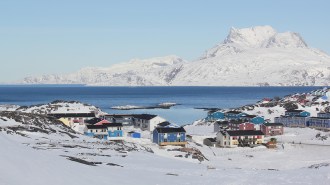 Earth
EarthThe Arctic is warming even faster than scientists realized
The Arctic isn’t just heating up two to three times as quickly as the rest of the planet. New analyses show that warming is almost four times as fast.
-
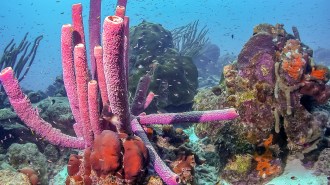 Life
LifeSea sponges launch slow-motion snot rockets to clean their pores
Sea sponges rely on a sneezing mechanism to clear their pores, using mucus to flush out debris. This mucus provides food for other marine life.
By Jude Coleman -
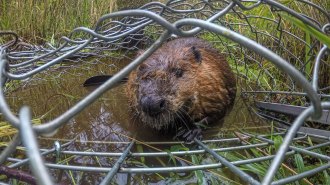 Animals
AnimalsRelocated beavers helped mitigate some effects of climate change
Along a river in Washington state, the repositioned beavers built dams that lowered stream temperatures and boosted water storage.
-
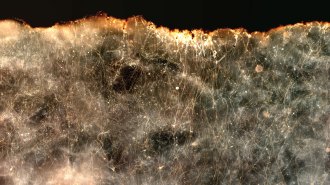 Environment
EnvironmentElectrical bacteria may help clean oil spills and curb methane emissions
Cable bacteria are living electrical wires that may become a tool to reduce methane emissions and clean oil spills.
By Nikk Ogasa -
 Climate
ClimateHumans may not be able to handle as much heat as scientists thought
Humans’ capacity to endure heat stress may be lower than previously thought — bad news as climate change leads to more heat waves around the globe.